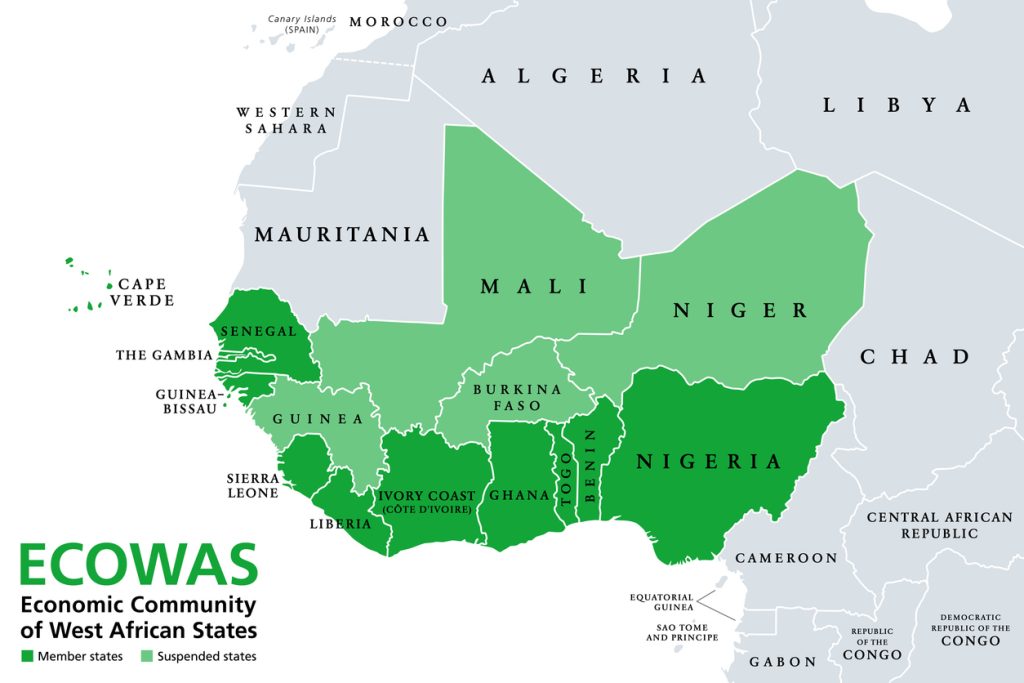The ECOWAS Trade Liberalization Scheme (ETLS) is a cornerstone regional initiative that fosters a free trade area across the 15 member states of the Economic Community of West African States (ECOWAS). First introduced in 1979 for agricultural and handicraft products and expanded in 1990 to industrial goods, ETLS aims to eliminate customs duties, simplify trade, and accelerate regional economic integration.
1. What Is ETLS?
ETLS is a continental-level free trade mechanism that:
- Abolishes customs duties and tariff-equivalent taxes on originating products within ECOWAS
- Eliminates non-tariff barriers among member states
- Supports a Common External Tariff (CET) for trade with non-members
- Helps implement ECOWAS’s broader goals of a free trade area, customs union, and regional economic cohesion
2. Who and What Qualifies Under ETLS?
A. Eligible Goods
- Agricultural products (e.g. fish, livestock, crops)
- Artisanal handicrafts
- Industrial/manufactured products, including processed goods
B. Rules of Origin
To qualify, goods must meet at least one of these criteria:
- Wholly produced in ECOWAS or at least 60% local content
- Change in tariff heading (HS code shift)
- Value-addition: ≥ 30% value added within the region
C. Certification
- Products must be approved by a National Approvals Committee (NAC) in each country
- Once approved, producers receive an ECOWAS-UEMOA Certificate of Origin (CoO) issued by designated authorities
3. How ETLS Works: The Trade Journey
- Apply via national NAC with Company and Product details
- Undergo inspection and documentation review
- Approval is forwarded to ECOWAS Commission and all member states
- CoO issued, enabling duty-free cross-border trade
- Products move freely among ECOWAS countries under CET
4. Benefits of ETLS
- Zero customs duties within ECOWAS, providing cost savings and competitive pricing
- Access to a regional market of over 400 million people
- Incentivises local production and regional value addition
- Ease of logistics, with duty-free transit and reduced non-tariff barriers
5. Nigeria’s ETLS Performance
- Nigeria ratified in 1979, with ETLS becoming active in 1988–1990
- Over 584 Nigerian firms and 6,000+ products have been accredited
- Nigeria ranks top in participation, followed by Ghana and Côte d’Ivoire
6. Challenges to ETLS
- Weak infrastructure, especially at borders and transport corridors
- Non-tariff barriers, including informal checkpoints and uneven enforcement
- Limited awareness and capacity gaps among SMEs and exporters
- Need for better domestic alignment—especially harmonisation of customs and legal frameworks
7. ETLS & AfCFTA: Synergies Ahead
ETLS provides a tested blueprint for the African Continental Free Trade Area (AfCFTA). As ECOWAS aligns its rules of origin and digital customs systems, it strengthens both regional and continental trade frameworks.
Conclusion
The ECOWAS Trade Liberalization Scheme stands as a transformative component in West African trade integration. With robust participation and benefits, particularly for Nigerian producers and logistics operators, ETLS reduces trade costs, opens regional markets, and supports economic diversification. Despite persistent challenges, its alignment with broader African trade agendas reinforces its strategic importance.
For businesses intending to trade regionally under ETLS, Travo.ng offers expert services in customs clearance, bonded shipping, haulage, and compliance across ECOWAS and AfCFTA markets.







